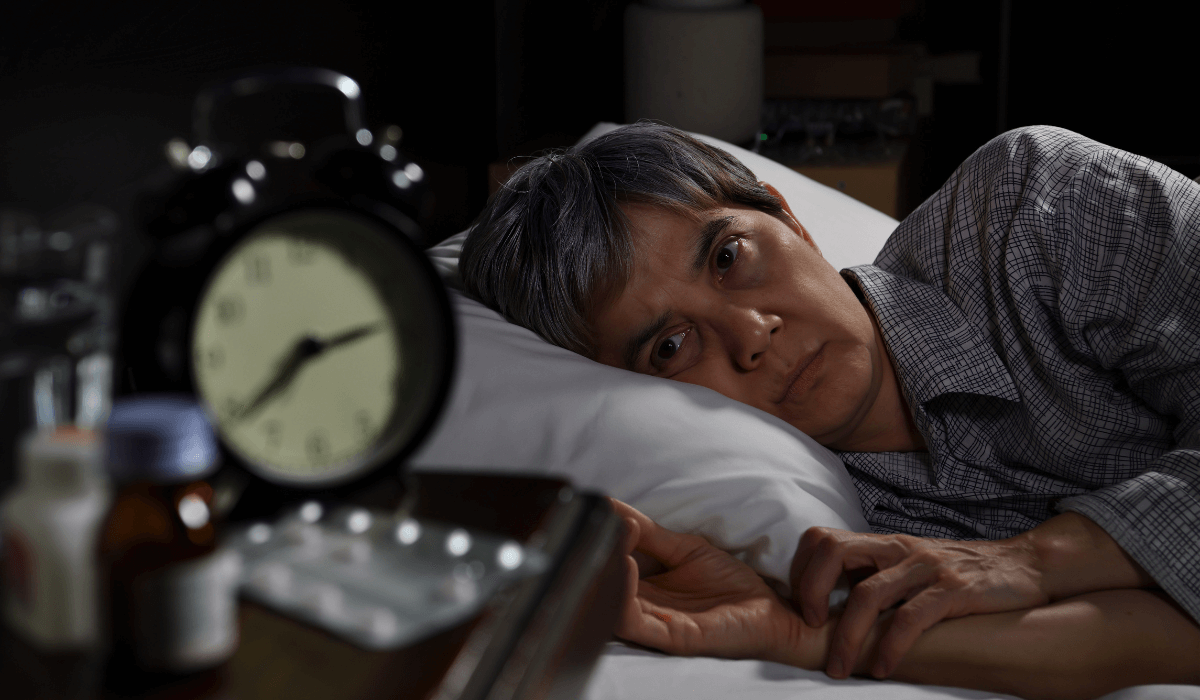Why cannot I sleep at night even when I am tired

Sleep is a fundamental human need that is essential for our physical and mental wellbeing. It allows our bodies to rest and recover, and helps us to function properly during the day. However, for many people, getting a good night’s sleep can be a real challenge. Despite feeling tired, they struggle to fall asleep or stay asleep throughout the night. We will explore some of the reasons why you may be having trouble sleeping at night, and offer some tips and strategies for improving the quality of your sleep.
The Importance of Sleep
Before we dive into the causes and solutions for insomnia, it’s important to understand just how vital sleep is for our health and wellbeing. During sleep, our bodies go through a series of restorative processes that help us to repair and regenerate. It is also a crucial time for the brain, allowing it to consolidate memories and process information. Lack of sleep can lead to a range of negative consequences, including:
• Increased risk of accidents and injuries
• Impaired cognitive function and memory
• Weakened immune system
• Increased risk of chronic health conditions, such as obesity, diabetes, and heart disease
• Mood disturbances, such as anxiety and depression
What is Insomnia?
Insomnia is a sleep disorder characterized by difficulty falling asleep, staying asleep, or both. It can be acute, lasting for a few days or weeks, or chronic, lasting for months or even years. Insomnia can be caused by a range of factors, including lifestyle habits, medical conditions, and mental health issues.
Common Causes of Insomnia
Let’s take a closer look at some of the most common causes of insomnia:
- Stress and Anxiety
One of the most significant contributors to insomnia is stress and anxiety. When we are under stress, our bodies release hormones that prepare us for a fight or flight response. This can make it difficult to relax and fall asleep. Anxiety can also cause racing thoughts and a feeling of restlessness, making it hard to quiet the mind and drift off.
- Depression
Depression is another common cause of insomnia. People with depression often have difficulty sleeping, either because they have trouble falling asleep or staying asleep. Lack of sleep can exacerbate feelings of depression, creating a vicious cycle.
- Medical Conditions
Certain medical conditions can also contribute to insomnia. These may include chronic pain, asthma, arthritis, or gastrointestinal problems. Sleep apnea, a condition in which breathing is interrupted during sleep, can also lead to poor sleep quality.
Tips for Improving Sleep Quality
If you’re struggling with insomnia, there are several steps you can take to improve the quality of your sleep. Here are a few tips to get you started:
• Create a Sleep-Conducive Environment
Your sleep environment can have a significant impact on the quality of your sleep. Make sure your bedroom is quiet, dark, and cool, and invest in a comfortable mattress and pillows. Consider using blackout curtains or a white noise machine to block out any external disturbances.
• Develop a Bedtime Routine
Establishing a regular bedtime routine can help signal to your body that it’s time to sleep. This may include activities such as taking a warm bath, practicing relaxation techniques, or reading a book.
• Limit Screen Time before Bed
The blue light emitted by electronic devices can interfere with your body’s natural sleep-wake cycle. Try to avoid using your phone, computer, or TV for at least an hour before bed.
• Practice Relaxation Techniques
Relaxation techniques such as deep breathing, meditation, or progressive muscle relaxation can help calm your mind and prepare your body for sleep. Consider incorporating these practices into your bedtime routine.
Treatment Options for Insomnia
The treatment options for insomnia depend on the underlying cause of the condition. In some cases, addressing lifestyle factors such as poor sleep habits or stress may be enough to improve sleep quality. In other cases, medical treatment or therapy may be necessary. Here are a few common treatment options for insomnia:
- Cognitive Behavioral Therapy
Cognitive behavioral therapy (CBT) is a type of therapy that helps people identify and change negative thought patterns and behaviors that may be contributing to their insomnia. CBT for insomnia may involve relaxation techniques, sleep restriction, or other behavioral interventions.
- Medications
There are several medications that may be used to treat insomnia, including benzodiazepines, nonbenzodiazepine sedatives, and melatonin receptor agonists. These medications are generally prescribed for short-term use and may have side effects.
- Lifestyle Changes
Making lifestyle changes such as establishing a regular sleep schedule, limiting caffeine and alcohol intake, and engaging in regular exercise can help improve sleep quality.
Conclusion
Getting a good night’s sleep is essential for our overall health and wellbeing. If you’re struggling with insomnia, there are several steps you can take to improve the quality of your sleep. By creating a sleep-conducive environment, developing a bedtime routine, and practicing relaxation techniques, you can help promote restful, restorative sleep. Remember, if you’re still having trouble sleeping, don’t hesitate to seek professional help.
RECENT ARTICLES
